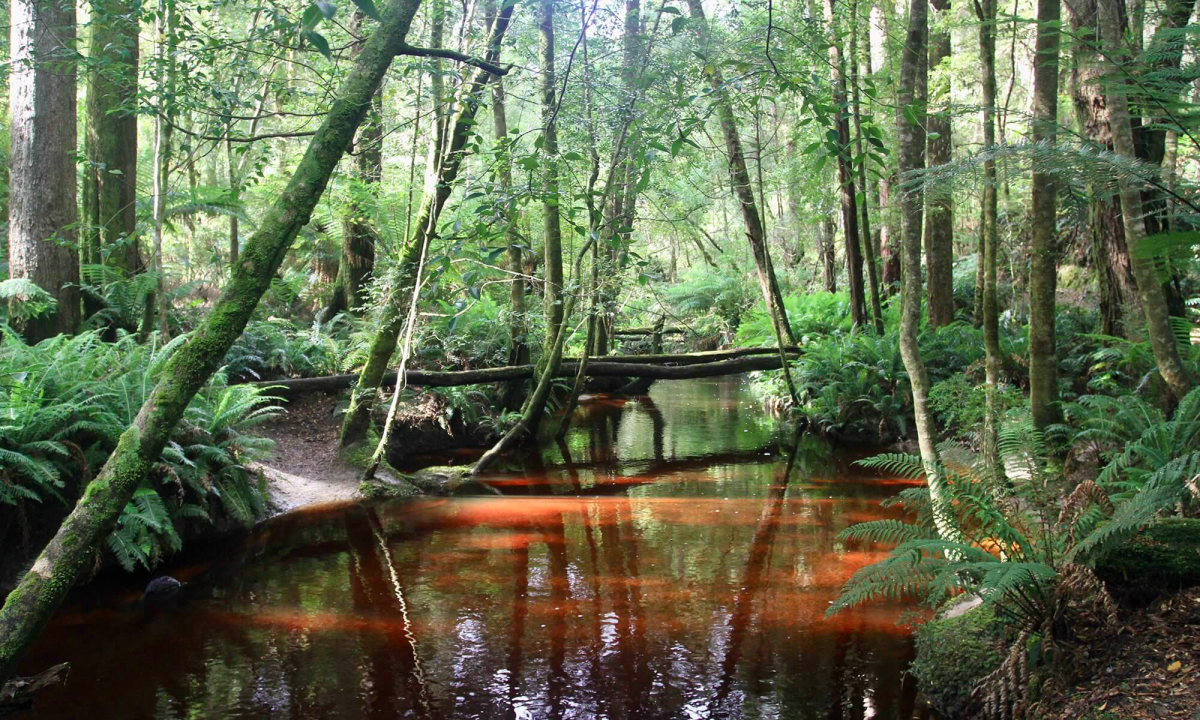Strahan – gateway to Tassie’s wild west
Strahan is a wild place on the edge of some of the most beautiful and inhospitable wilderness you can imagine. History in the area dates back to 1821 when the worst of the worst criminals were sent out to Sarah Island, a tiny island in the harbour not far from Strahan, from the British colony to serve their time. It wasn’t for another 50 years that Strahan became a safe port.
Even today it’s regarded as one of the loneliest and most isolated places on the planet, and after spending a few days there I can only imagine what it would have been like 100 years ago. Convicts only lasted 12 years before the Governor at the time decided the area was too hostile, and they were moved to the Port Arthur colony.

The harbour itself is nearly 50km long, allowing safe shelter from the raging weather, but the entrance to the Macquarie Harbour is one of the most dangerous in the world. Hell’s Gates as it is known, is a narrow 100 metre wide fast flowing channel out to sea. It was given this name by convicts, as the channel marked their entrance to ‘hell’, where they would serve time as a criminal in the most remote penal colony in the world. Many ships came to grief here, and most within sight of their mooring post. The harbour is rarely clear as brown button grass-stained water flows into it from the river above.
Today Strahan is a stunning town that hugs the bay, with plenty of tourist attractions both manmade and natural. Buildings around town date back to the 1800’s and boast a Federation feel. The wharf complex has an array of wood-working workshops and displays, and it’s the place to book a harbour cruise out through Hell’ Gates (conditions permitting) plus there’s a few tourist shops.
A heritage walk follows the main street up past the stunning old Customs House which is now the local post office. You’ll also see Ormiston House which was once owned by Fred Ormiston who made his money in the tin mines, but today is a beautifully restored B&B.
Around the bay there’s Regatta Point Rail Station which was built back in 1890 to transport loads from the mines over the mountains to the port. Today it’s part of a scenic tourist rail ride between Strahan and Queenstown, and inside the restored station they serve some of the best meals and coffee that the town has to offer.

Natural attractions around town include the stunning Hogarth Falls, just minutes from town. This land was donated to the shire and it’s an easy 30 minute stroll through tall tree ferns and mixed rainforest trees to the falls. There’s plenty of info along the way which provides background on just how this area was formed millions of years ago. If the weather is clear a drive up to Water Tower Hill gives you unrelenting views up the harbour.
Macquarie Harbour needs to be explored by taking the short 10 minute drive out to the heads where you can look down on Hell’s Gate, witnessing the tides throwing up huge waves and the ruggedness of the west coast. Across the bay on the tiny Bonnet Island you can clearly see the lighthouse that was built in the late 1800s to guide the tall ships, and if the weather is clear you can also see the huge stone wall built at the same time to stop the entrance blocking with sand.
If you’ve got a 4wd and the tides are right you can drive up along Ocean Beach for miles for a spot of fishing or head towards Henty Dunes for some of the best sand driving on the island.
Strahan borders on the Franklin-Gordon Wild Rivers NP which was once the head of world controversy over damming the Franklin River, but luckily today it’s been declared a World Heritage area. Even though it’s an extremely remote and inaccessible national park, it still attracts visitors from around the globe who are drawn to it for this very reason.
If you like it wild, blustery with a hint of remarkable history thrown in, Strahan needs to be on your list when visiting Tasmania. Like me you won’t be disappointed.

The post Strahan – gateway to Tassie’s wild west appeared first on Lets Go Caravan and Camping.
Lets Go Caravan and Camping
